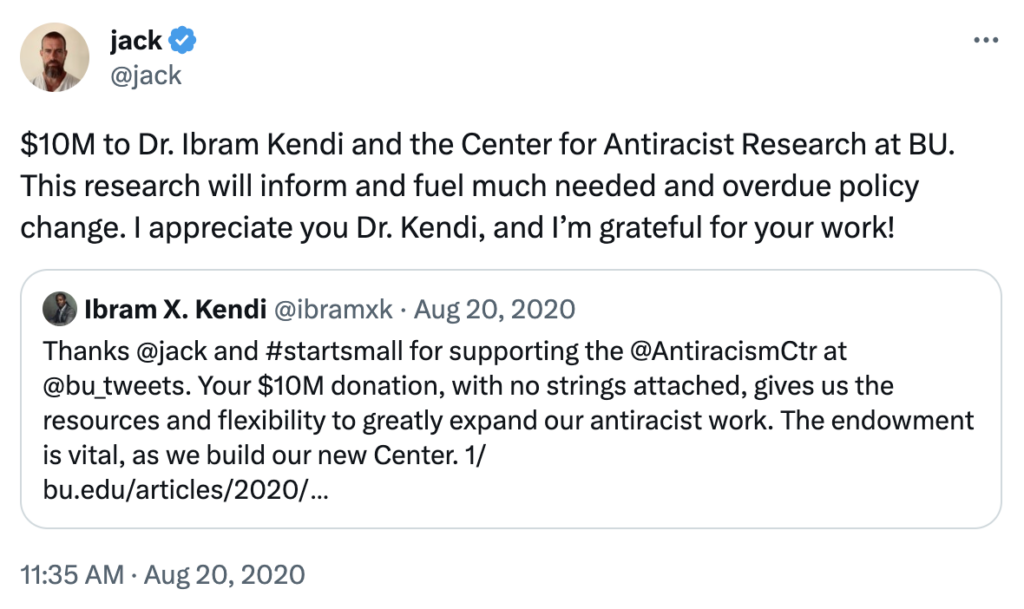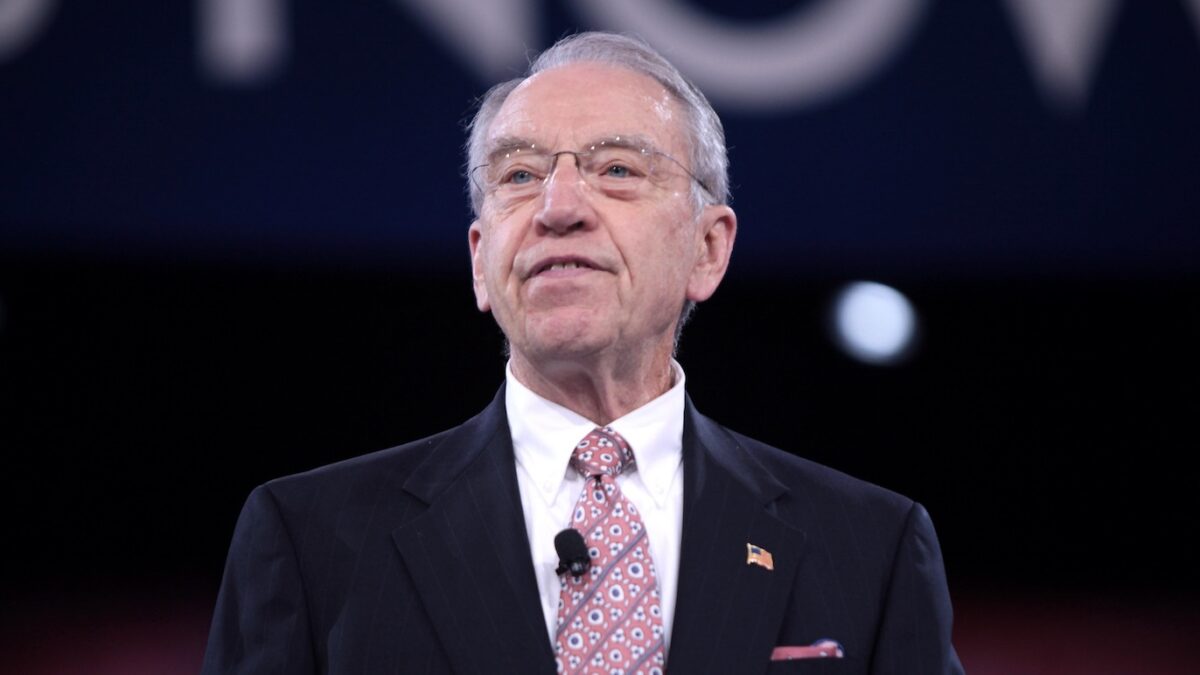
Boston University announced this week that it would broaden its inquiry into Ibram X. Kendi’s Center for Antiracist Research (CAR) after allegations of severe financial mismanagement.
Based on testimonies from several former CAR staffers, BU’s independent school newspaper The Daily Free Press reported that “the Center appeared to prioritize fundraising and revenue over research.”
Kendi founded the CAR at Boston University on the heels of the destructive summer 2020 race riots to advance “racial equity and social justice.” The center’s launch was quickly popularized by fawning corporate media, which used the summer’s racial unrest as an excuse to promote Kendi’s work.
It wasn’t long before the center raked in at least $43 million in donations from big names like Twitter’s Jack Dorsey, the Rockefeller Foundation, Peloton, and other big businesses that make a habit of supporting leftist-led activism. Their contributions stirred up even more PR for CAR. Small donors who were told sending money to a Kendi pet project would help them become “antiracist” also contributed to the CAR cash grab.
To put it simply, CAR was uncritically promoted by the press simply because its goals fit the media’s preferred political agenda. The Claremont Institute’s BLM Funding Database found that more than $99 billion was funneled to the “BLM Movement & Related Causes” like the CAR.


Now the center, once hailed by corporate media and frequented by Democrat politicians, is falling apart just three years into its existence. Amid the mounting scrutiny from BU over CAR’s “culture and its grant management practices,” the center let more than half of its staff go under the guise of restructuring to a “fellowship program.” The center is also scrambling to explain exactly where its seven-figure budget went.
“I don’t know where the money is,” BU Professor Saida Grundy, who worked at the center from fall 2020 to spring 2021 before she was allegedly cut off, told The Boston Globe.
Phillipe Copeland, who spent two years at the center before leaving in June, explained to The Daily Free Press at least one of the center’s donors pulled out of its funding role because of CAR’s reported shortcomings.
“People started to get nervous,” Copeland said. “A funder, or more than one funder was like, basically, ‘we’re seeing the same thing that your staff are seeing, which is that the Center is having a problem, and we’re not going to keep giving you money.’”
Corporate media’s unabashed support for causes that ultimately end up squandering or mismanaging donor funds is not uncommon.
Around the same time newsrooms typed up press releases celebrating CAR’s launch, publications across the U.S. urged Americans to join the reckoning on “institutional racism” by giving to Black Lives Matter, bailing out rioters, and buying Kendi’s books.
Thanks to amplification by TV and print publications, the Black Lives Matter Global Network Foundation (BLM GN) raised $90 million following George Floyd’s death. Fortune 500 companies were largely responsible for the vast funds. Some big businesses like Kellogg went so far as to pledge tens of millions to BLM while cutting worker benefits.
But small donors’ contributions, 10 percent of which were recurring, certainly played a role in the foundation’s rapid rise to wealth. It wasn’t long before BLM GN started spiraling.
BLM GN might not be quite bankrupt, but it is plagued with financial scandals. The nonprofit spent millions on luxury real estate, and at least one of its co-founders allegedly enriched her family members with six-figure sums pulled from donor funds.
Even before 2020, the media were guilty of giving PR to organizations that were less than deserving of Americans’ dollars. One such organization was Time’s Up, a leftist-run nonprofit that shut down after it was exposed for protecting Democrats “from the very type of sexual assault and workplace inequality allegations they claimed to be fighting against.” Prior to its fall from glory, Time’s Up was showered by corporate media with shining profiles and positive attention.
Not even the organization’s first round of internal scandals could taint its relationship with national press outlets.
Americans recognize corporate media as the biggest threat to democracy. A majority of them say they don’t buy the propaganda press’s fake news narratives. The financial scandals that plague press favorites like CAR, BLM, and Time’s Up are only further proof that corporate media can’t be trusted.









